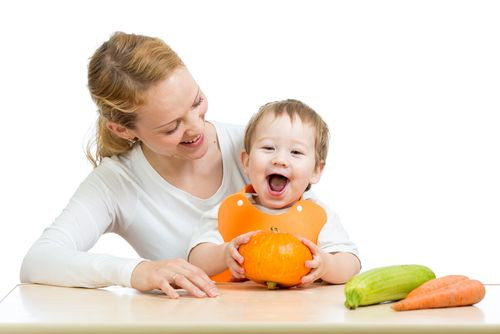Baby Talk: Parents, Speech Therapists Should Use Cues For New Words; Babies Learn Differently As They Grow

Most parents are proud of their toddler’s ability to grasp new words and of their ever-expanding vocabulary. New research has now shown how preschoolers relate meanings to words and learn as they grow. The research from the University of Missouri also found that most 18-month-olds learn around two to five words a day, and this number keeps changing as they get older. And while kids may pick up fast, there is a limit to how many words they can retain each day.
The aim of this research titled “The Type, but Not the Amount, of Information Available Influences Toddlers’ Fast Mapping and Retention of New Words,” is to help parents enhance their children’s ability to learn new words or help them if they have language disorders. The study was published in the American Journal of Speech-Language Pathology.
“We found that babies’ abilities to accurately guess the meaning of new words increases between 18 and 30 months of age, and by 24 to 36 months, toddlers are able to accurately guess the meanings of new words at a significantly higher level,” said researcher Judith Goodman in a statement. But the cues they use to identify these words changes as they mature, she says.
The study involved children in the age group of 18 to 36 months. They were taught six new words using three types of cues. The cues were presented alone or in pairs, and the researchers recorded the children’s ability to accurately guess what the words meant.
The children were then asked to relate words to objects, some that were familiar to them and some new. Children appropriately assigned the new words to the unfamiliar objects, and this ability to correlate improved with age, the researchers found. “The toddlers’ ability to infer a word’s meaning from linguistic context, such as figuring out that a ‘kiwi’ must be a food item when they hear, ‘Sammy eats the kiwi,’ also improved as the children aged. However, using social cues, such as eye gaze, became less effective as the children matured. By 36 months of age, children were less likely to assume a word referred to the particular object a speaker was looking at — looking at a kiwi when teaching the child the word ‘kiwi’ — than younger children were,” Goodman said.
But you cannot bombard a child with hundreds of words a day since a limit exists as to how many new words they can learn, according to Goodman. To prove this, the children were taught six words in a day. When they were tested on the words it was found that they better remembered the first three words they had learned.
This research can provide useful insight to speech therapists to design specific interventions for children with language problems. Presenting appropriate cues may aid in better retention of words, she says. Also, parents must be aware that how and what they speak to their kids, influences how well children learn new words. Maximum exposure to words along with specific cues to remember them can greatly enhance a child’s ability to pick up a language. Labeling everything in their surroundings at home or outside is a great method to develop this, says Goodman.
Source: Brady K, Goodman J. The Type, but Not the Amount, of Information Available Influences Toddlers’ Fast Mapping and Retention of New Words. American Journal of Speech-Language Pathology. 2014.
Published by Medicaldaily.com



























